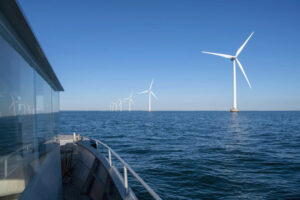Gov’t port repurposing boosts BuhaWind’s offshore wind plans
OFFSHORE wind energy developer BuhaWind Energy Philippines will advance its four-gigawatt (GW) projects after the government announced plans to repurpose three strategic ports as logistics hubs, a company official said. “Repurposing these ports is a game-changer for the Philippine offshore wind industry,” PetroGreen Energy Corp. President and Chief Executive Officer Francisco G. Delfin, Jr. said […]

OFFSHORE wind energy developer BuhaWind Energy Philippines will advance its four-gigawatt (GW) projects after the government announced plans to repurpose three strategic ports as logistics hubs, a company official said.
“Repurposing these ports is a game-changer for the Philippine offshore wind industry,” PetroGreen Energy Corp. President and Chief Executive Officer Francisco G. Delfin, Jr. said in a statement on Tuesday.
“The Currimao Port’s involvement in the BuhaWind project is crucial for establishing the Philippines as a significant player in the regional and global offshore wind market,” he added.
BuhaWind is a joint venture between Denmark’s Copenhagen Energy and PetroGreen, the renewable energy arm of the Yuchengco group.
The company is developing the 2,000-megawatt (MW) BuhaWind offshore wind farm in Northern Luzon.
The Currimao Port will play an important role in the construction and operation of the wind project, it said.
BuhaWind is developing two additional 1,000-MW offshore wind projects in Northern Mindoro and East Panay, set for completion by 2031 and 2033.
The Sta. Clara port in Batangas will support the Northern Mindoro project.
The Department of Energy (DoE) has announced that the Philippines Ports Authority is crafting detailed engineering designs and repurposing three priority ports: Currimao in Ilocos Norte, Batangas in Sta. Clara, and Jose Panganiban in Camarines Norte, due to their proximity to high-potential offshore wind energy sites.
The DoE plans a green energy auction for offshore wind in mid-2025. So far, it has awarded 92 contracts to 38 developers, totaling 66.101 gigawatts of potential capacity. — Sheldeen Joy Talavera












